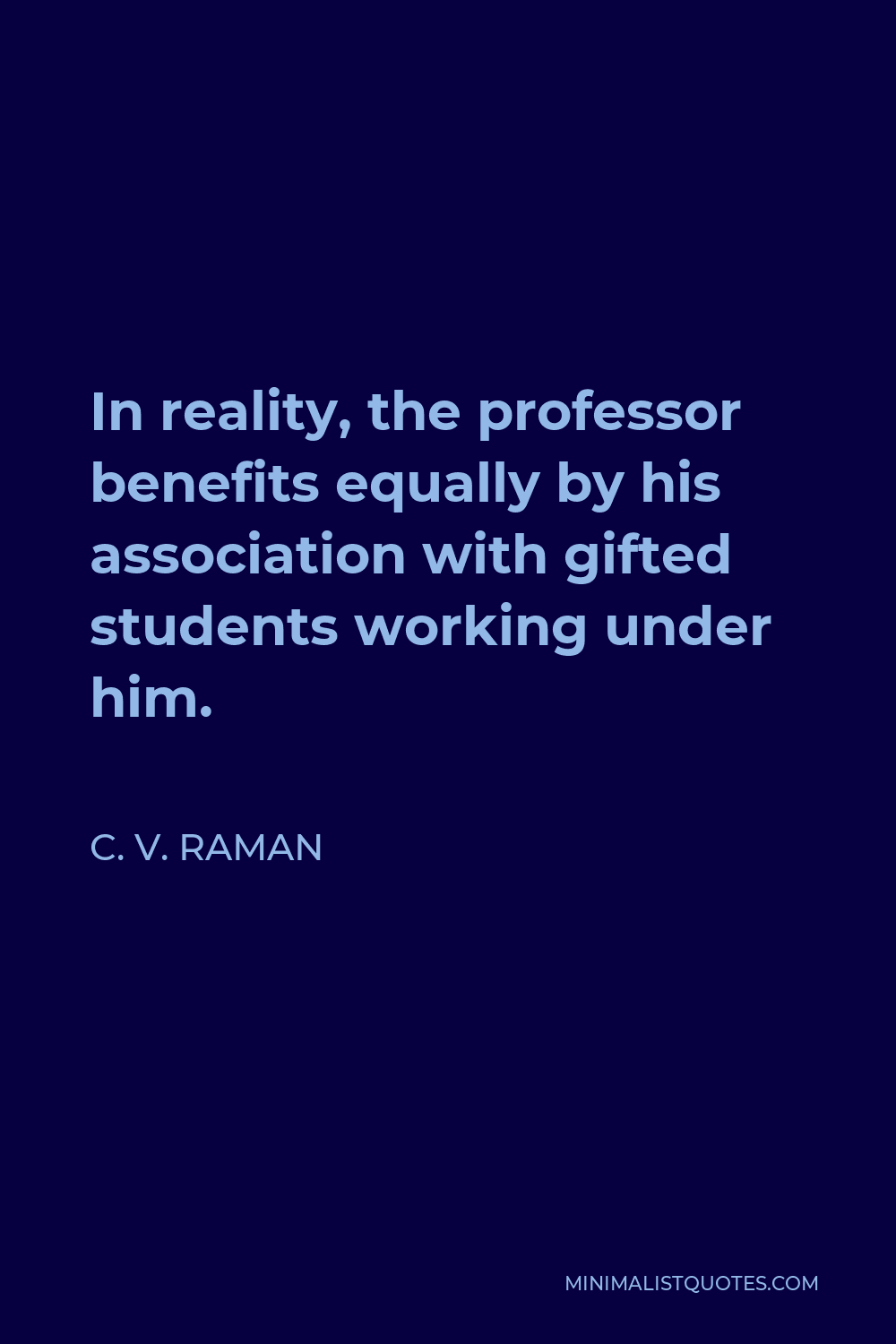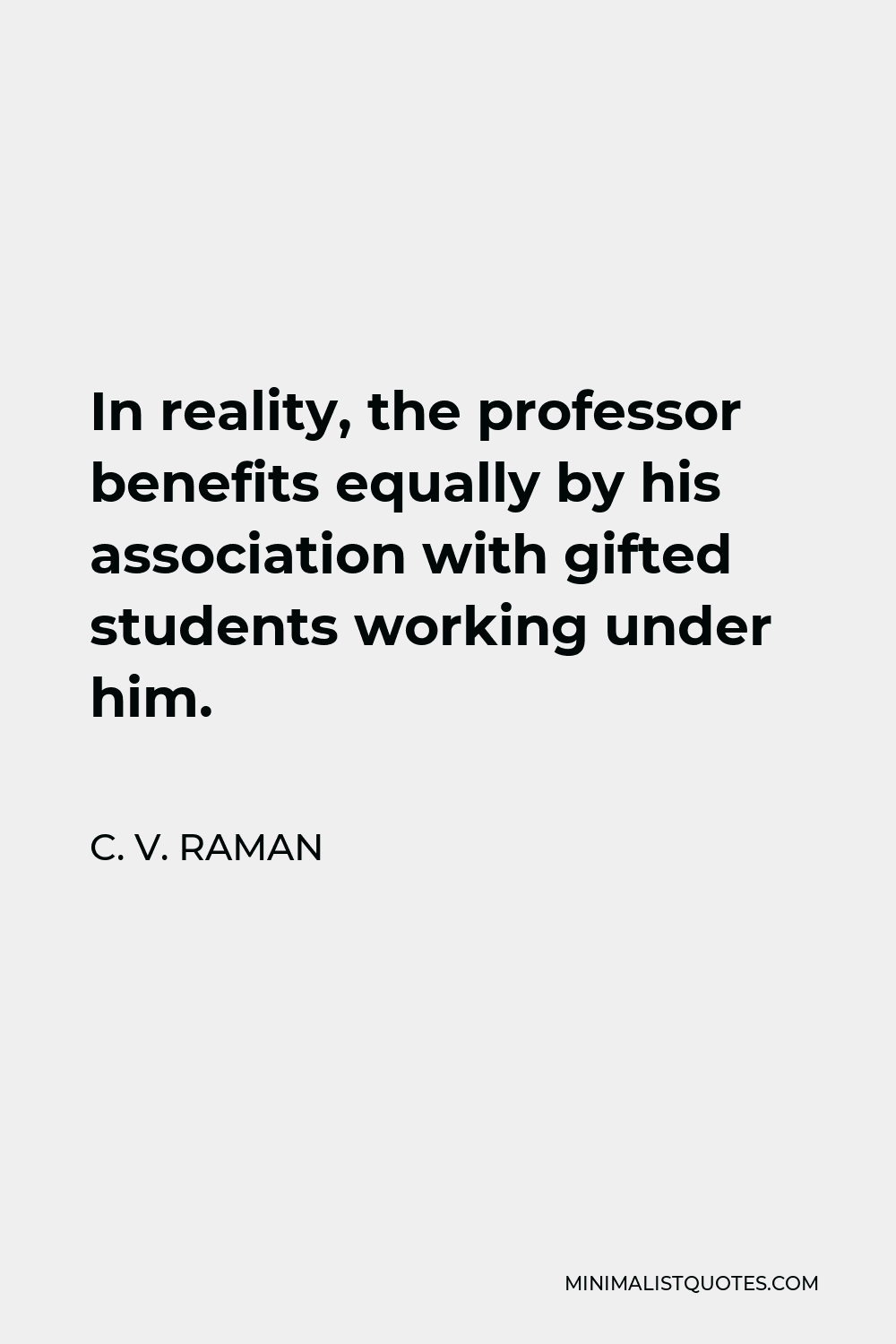It has been invariably my experience that I could count on his cooperation and sympathy in every matter concerning my scientific work.
C. V. RAMANIn reality, the professor benefits equally by his association with gifted students working under him.
More C. V. Raman Quotes
-





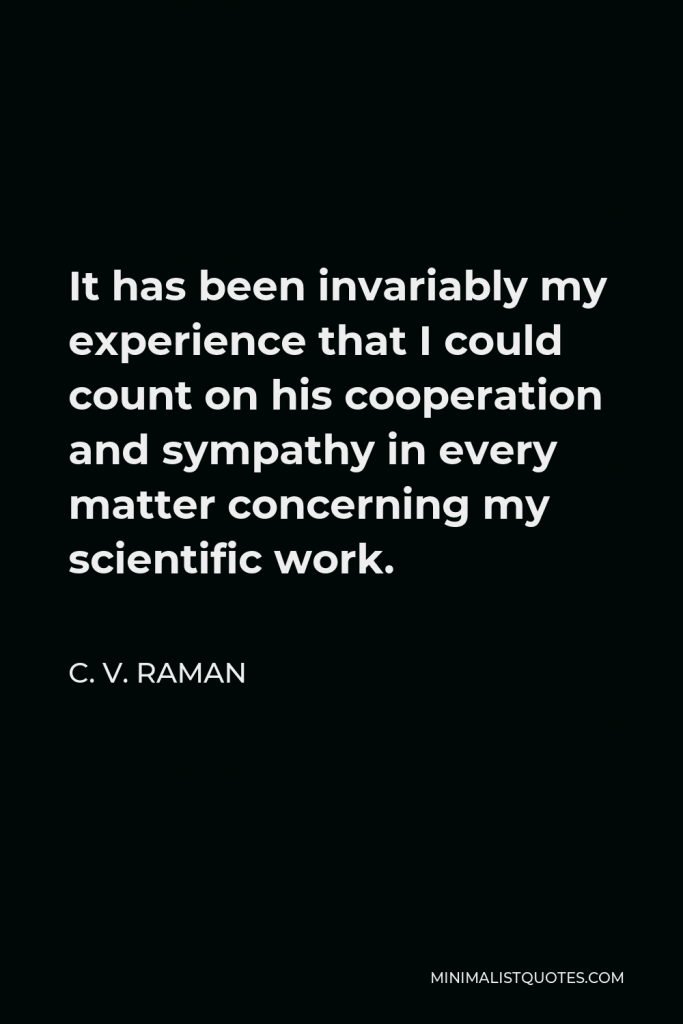

-





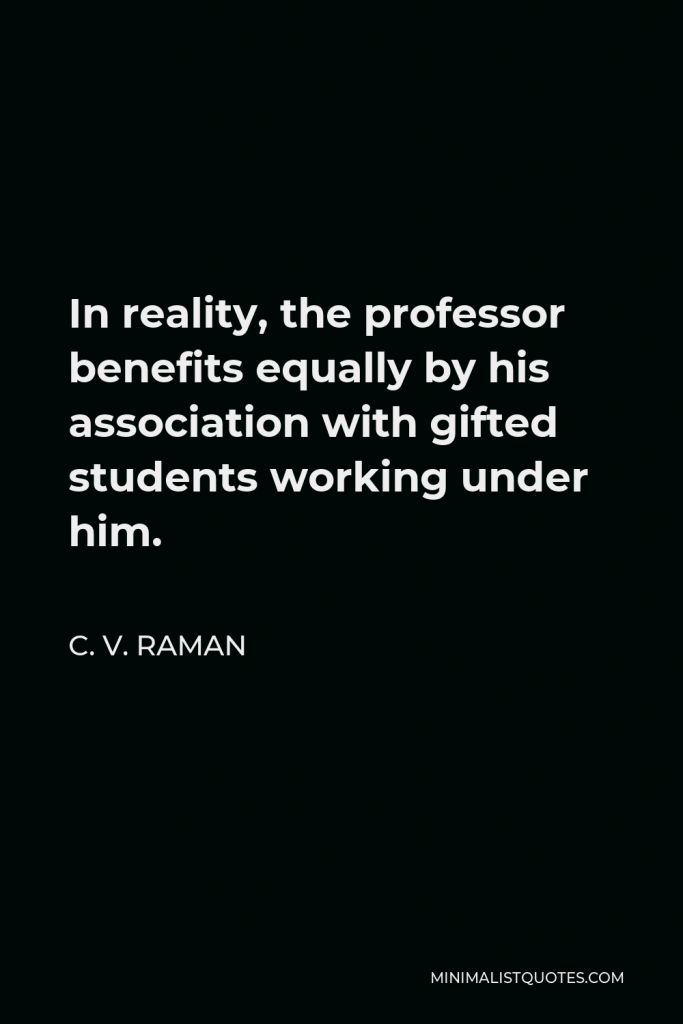

In reality, the professor benefits equally by his association with gifted students working under him.
C. V. RAMAN -





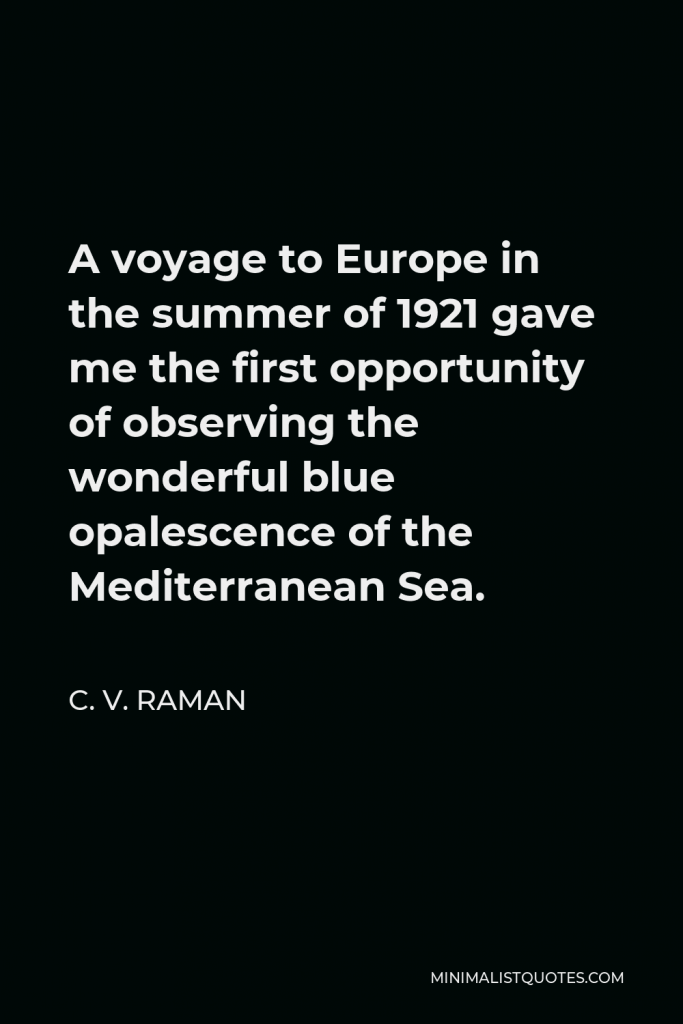

A voyage to Europe in the summer of 1921 gave me the first opportunity of observing the wonderful blue opalescence of the Mediterranean Sea.
C. V. RAMAN -





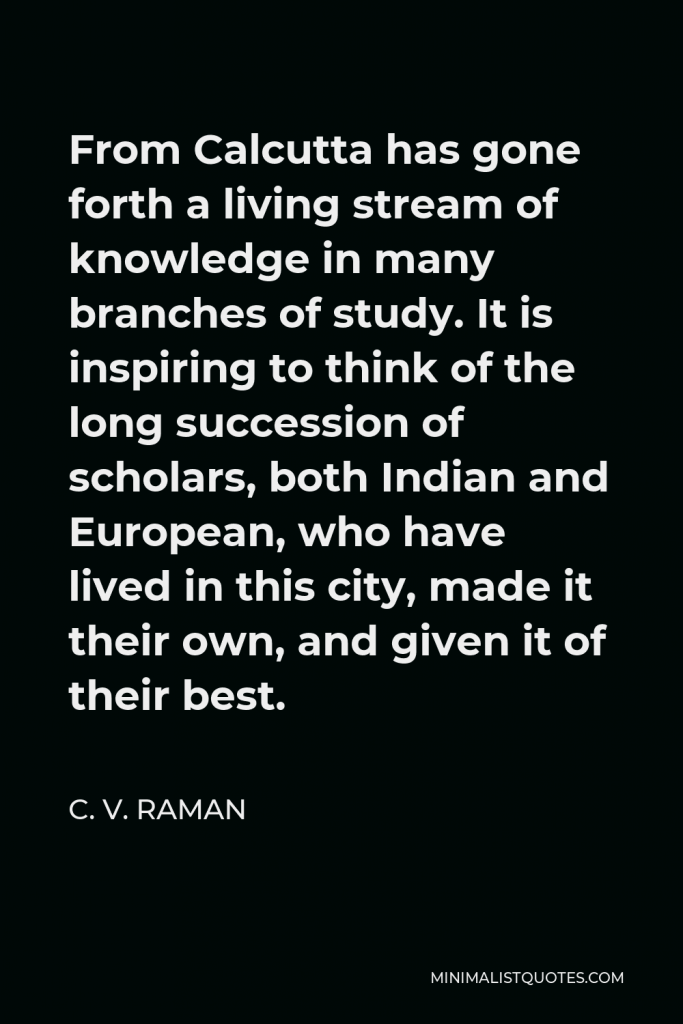

From Calcutta has gone forth a living stream of knowledge in many branches of study. It is inspiring to think of the long succession of scholars, both Indian and European, who have lived in this city, made it their own, and given it of their best.
C. V. RAMAN -





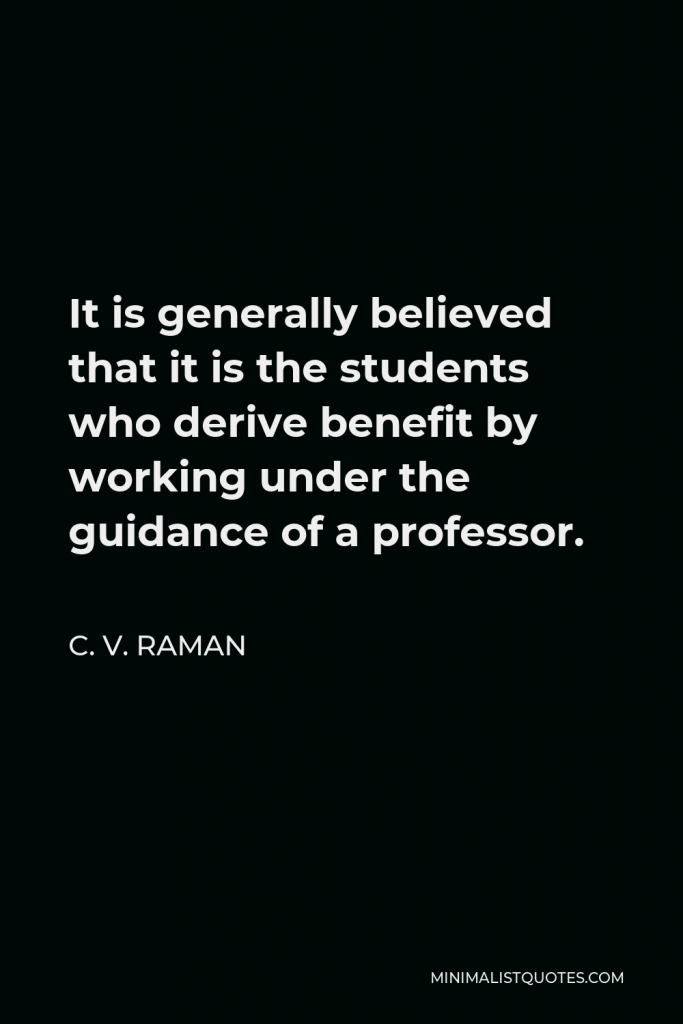

It is generally believed that it is the students who derive benefit by working under the guidance of a professor.
C. V. RAMAN -





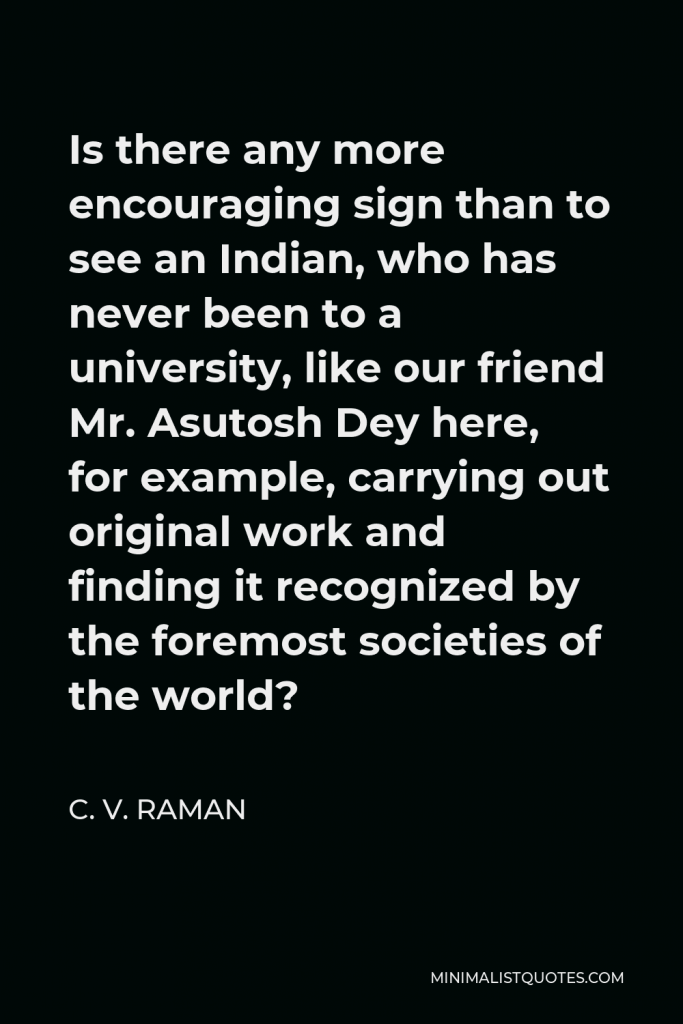

Is there any more encouraging sign than to see an Indian, who has never been to a university, like our friend Mr. Asutosh Dey here, for example, carrying out original work and finding it recognized by the foremost societies of the world?
C. V. RAMAN -





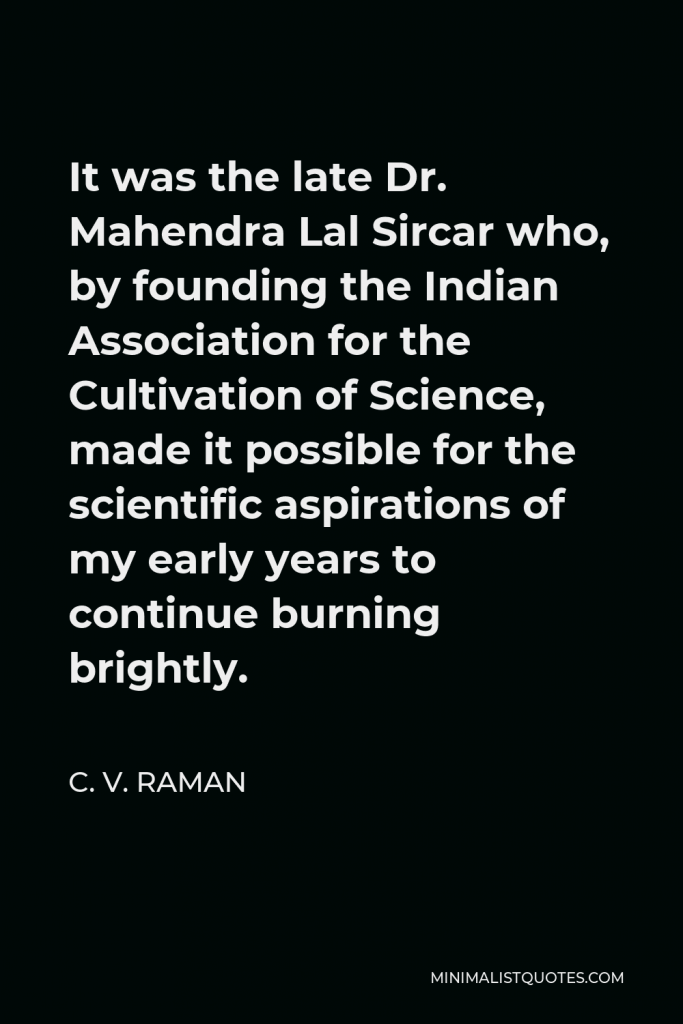

It was the late Dr. Mahendra Lal Sircar who, by founding the Indian Association for the Cultivation of Science, made it possible for the scientific aspirations of my early years to continue burning brightly.
C. V. RAMAN -





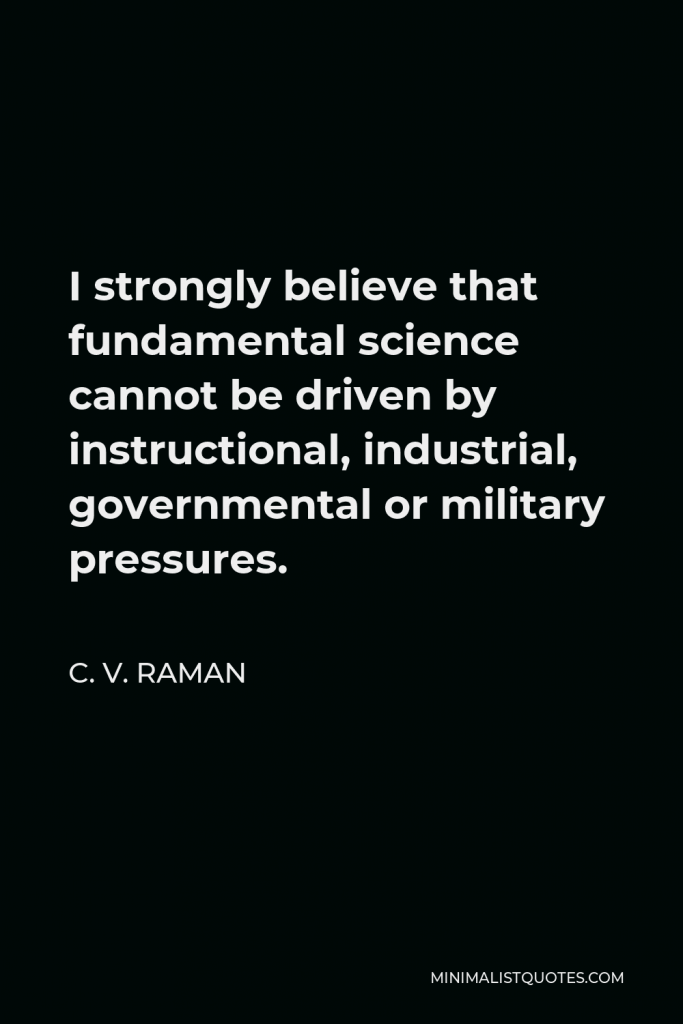

I strongly believe that fundamental science cannot be driven by instructional, industrial, governmental or military pressures.
C. V. RAMAN -





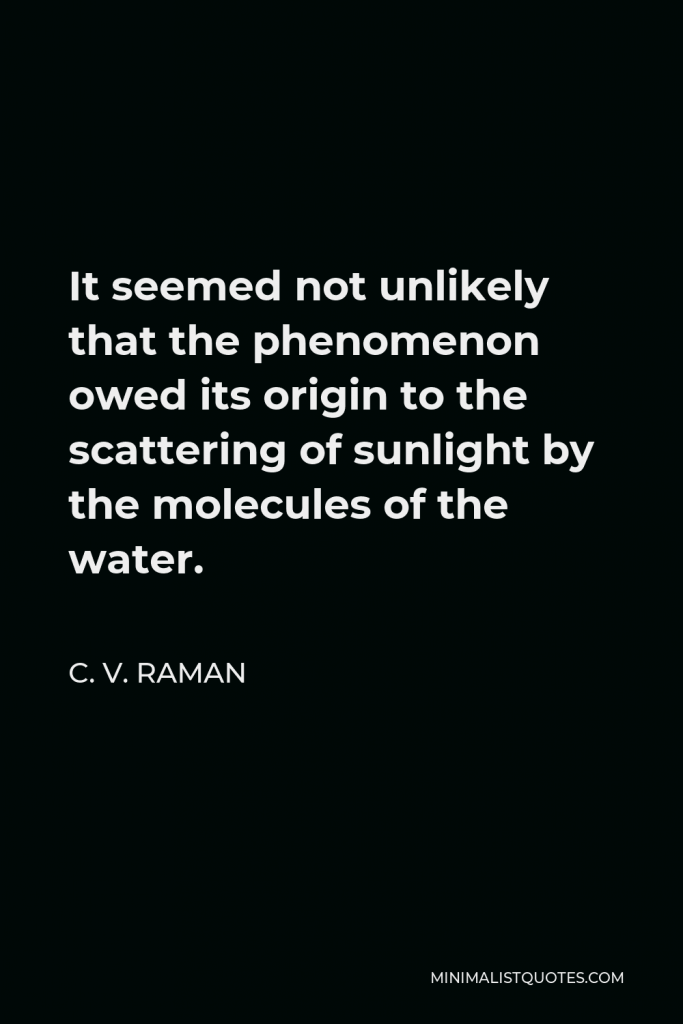

It seemed not unlikely that the phenomenon owed its origin to the scattering of sunlight by the molecules of the water.
C. V. RAMAN -





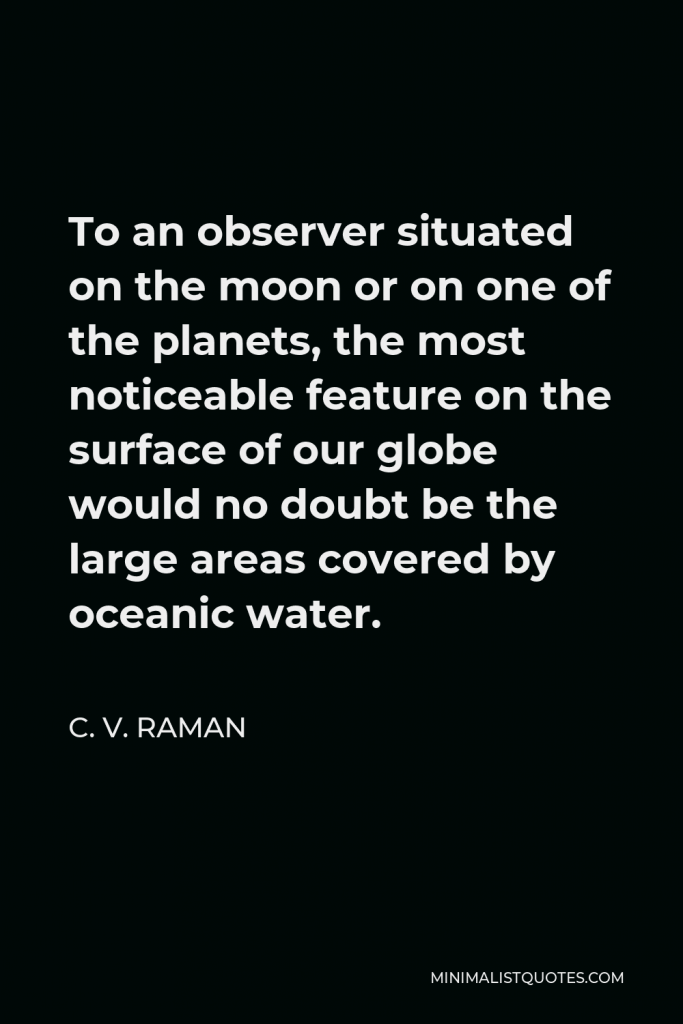

To an observer situated on the moon or on one of the planets, the most noticeable feature on the surface of our globe would no doubt be the large areas covered by oceanic water.
C. V. RAMAN -





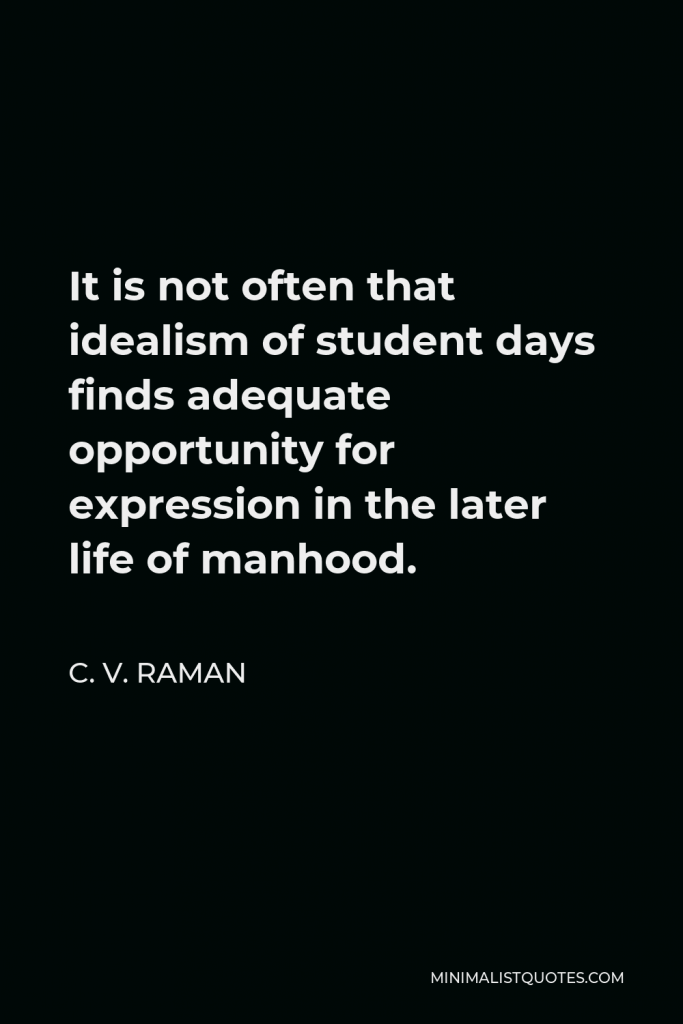

It is not often that idealism of student days finds adequate opportunity for expression in the later life of manhood.
C. V. RAMAN -





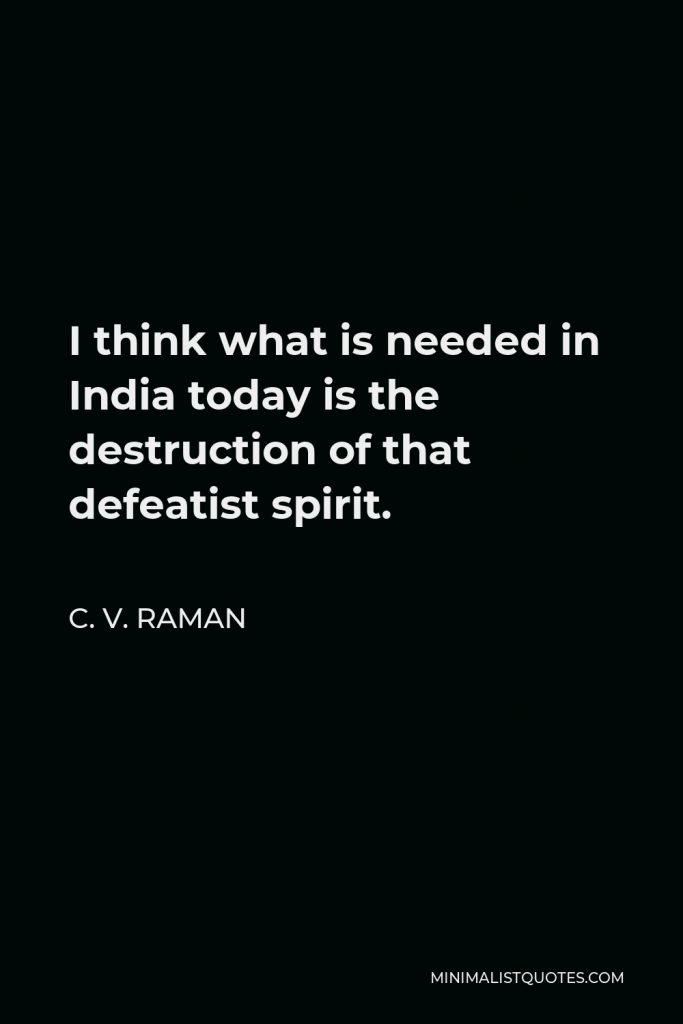

I think what is needed in India today is the destruction of that defeatist spirit.
C. V. RAMAN -





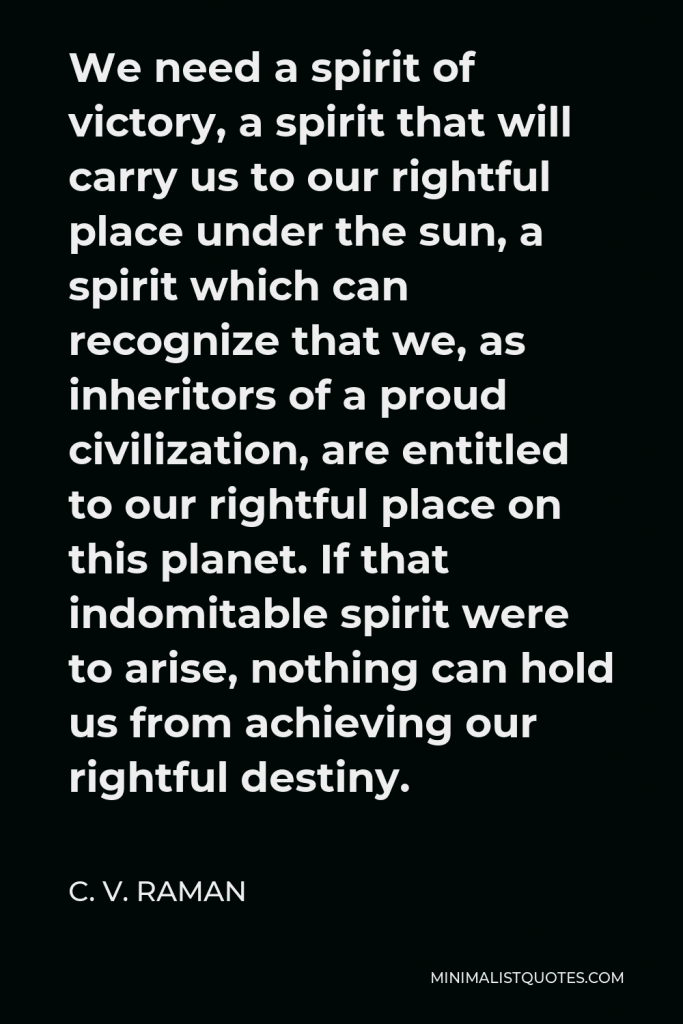

We need a spirit of victory, a spirit that will carry us to our rightful place under the sun, a spirit which can recognize that we, as inheritors of a proud civilization, are entitled to our rightful place on this planet. If that indomitable spirit were to arise, nothing can hold us from achieving our rightful destiny.
C. V. RAMAN -





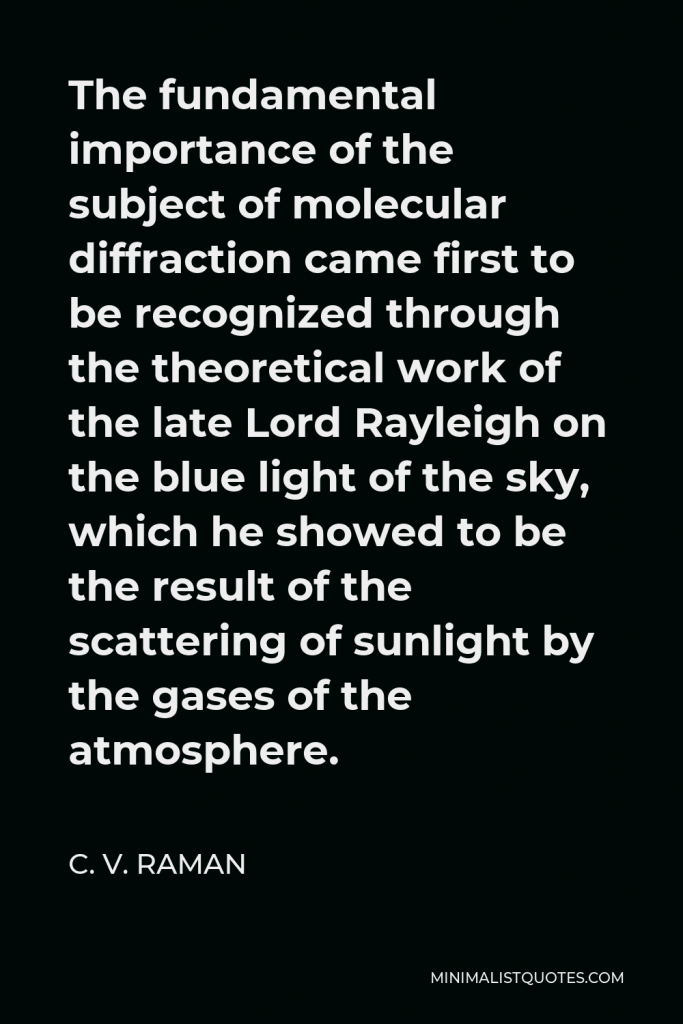

The fundamental importance of the subject of molecular diffraction came first to be recognized through the theoretical work of the late Lord Rayleigh on the blue light of the sky, which he showed to be the result of the scattering of sunlight by the gases of the atmosphere.
C. V. RAMAN -





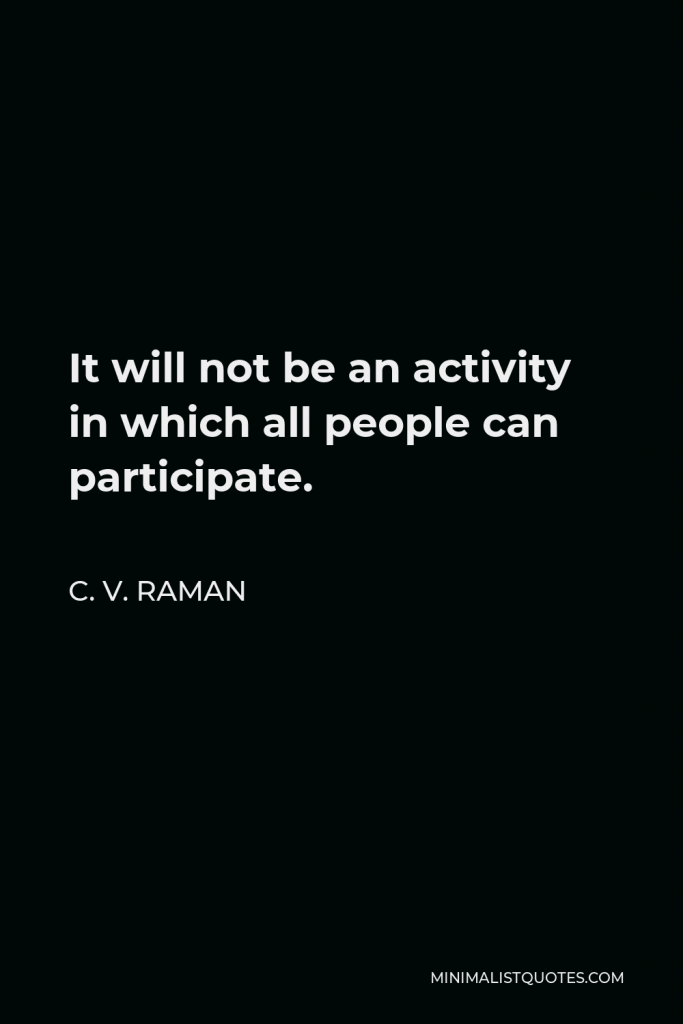

It will not be an activity in which all people can participate.
C. V. RAMAN -





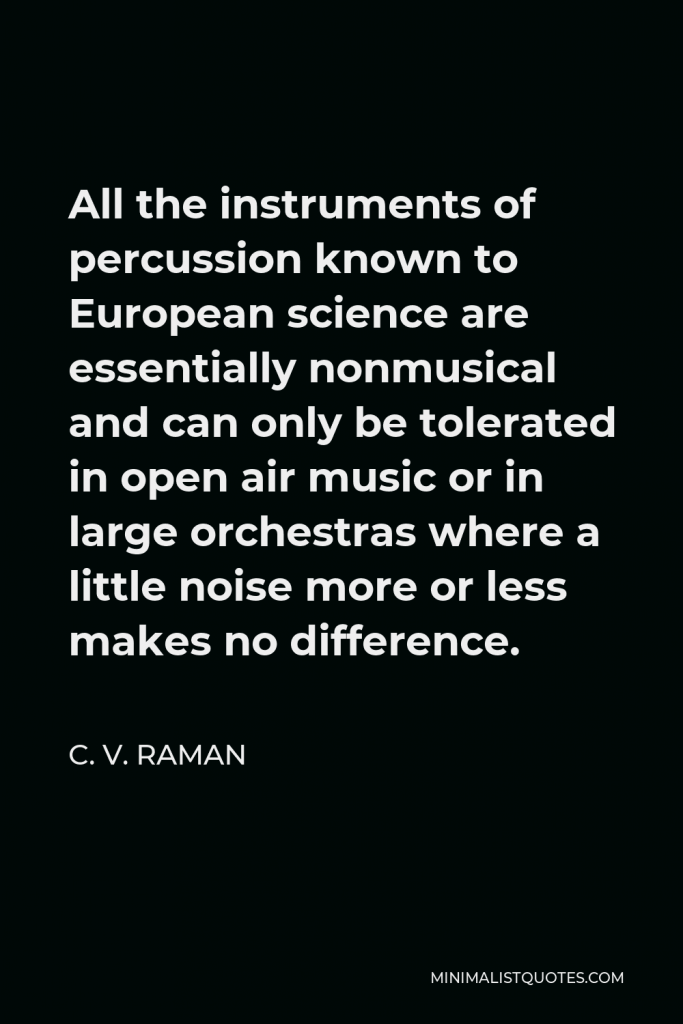

All the instruments of percussion known to European science are essentially nonmusical and can only be tolerated in open air music or in large orchestras where a little noise more or less makes no difference.
C. V. RAMAN


